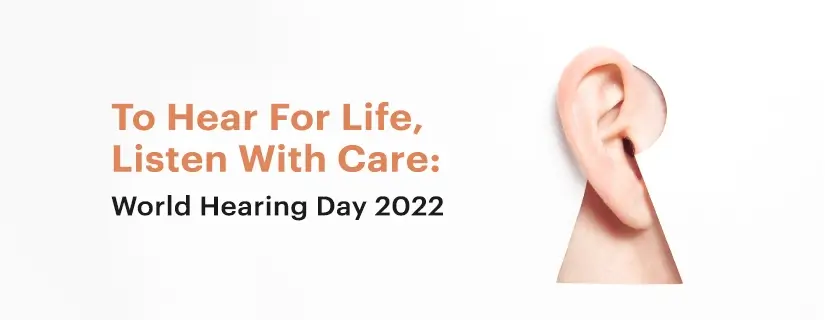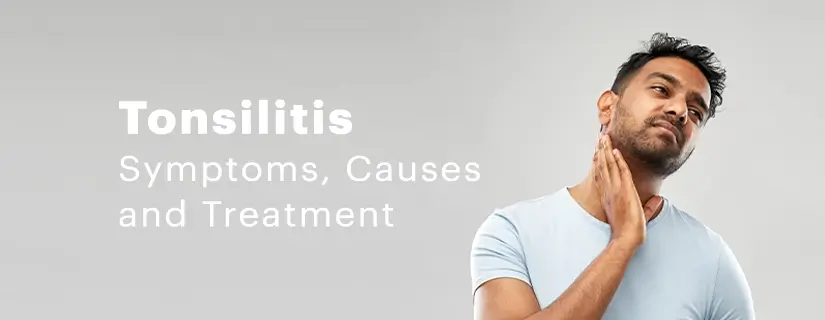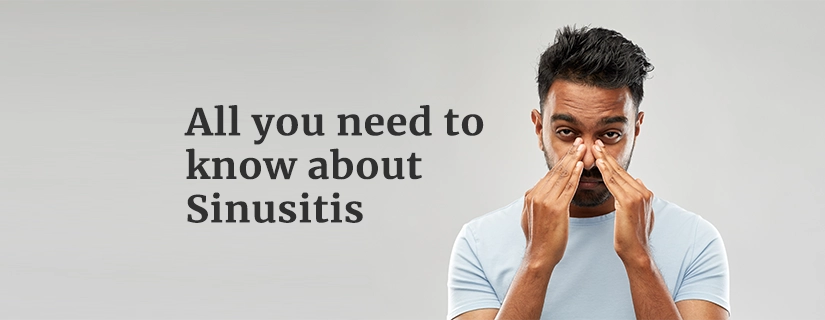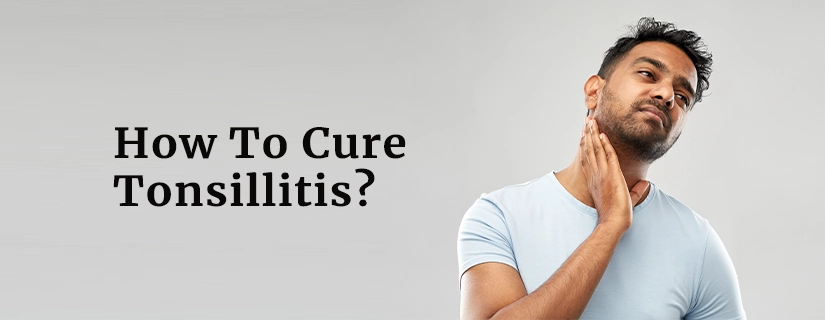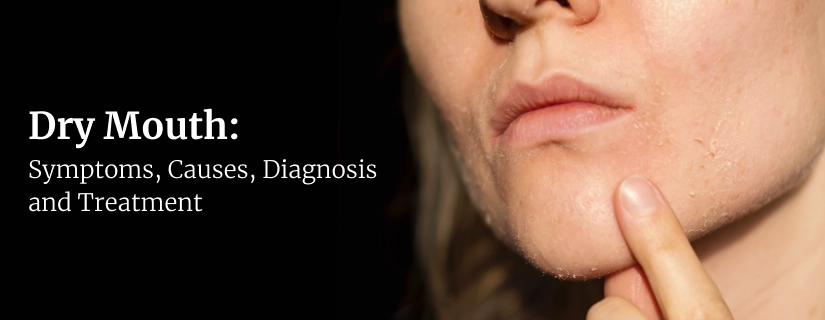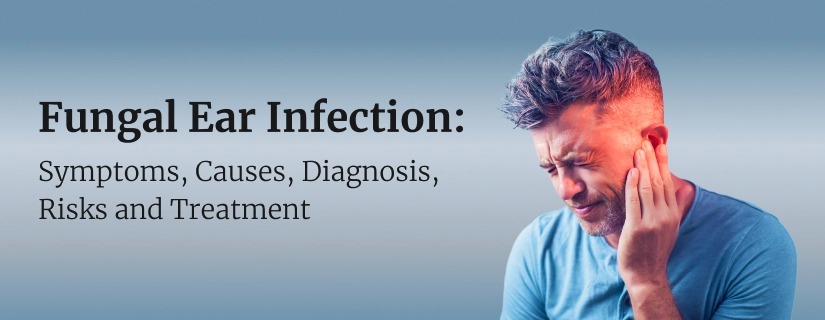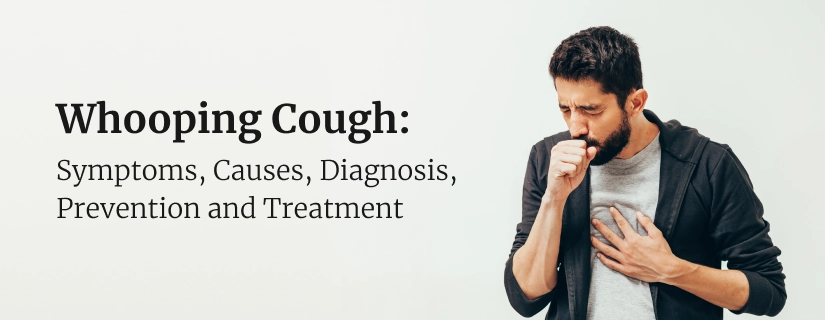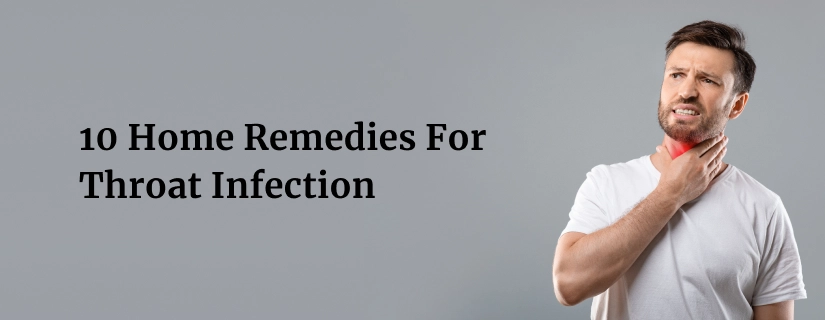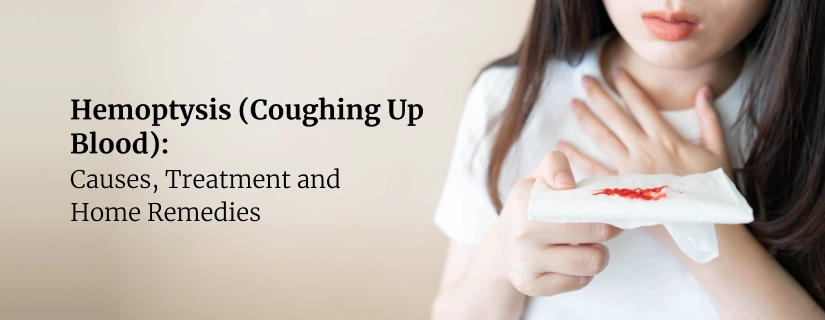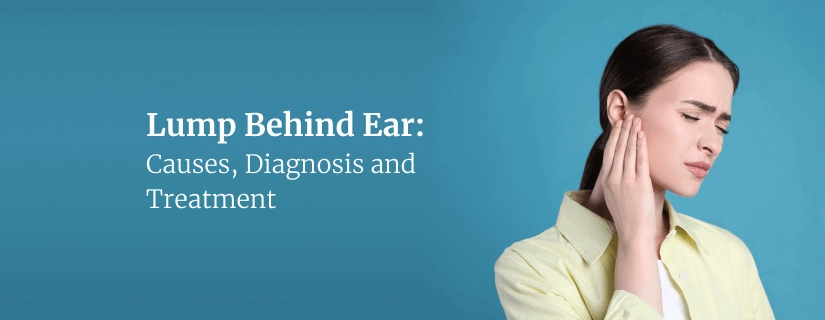-
Doctors
-
Specialities & Treatments
Centre of Excellence
Specialties
Treatments and Procedures
Hospitals & Directions HyderabadCARE Hospitals, Banjara Hills CARE Outpatient Centre, Banjara Hills CARE Hospitals, HITEC City CARE Hospitals, Nampally Gurunanak CARE Hospitals, Musheerabad CARE Hospitals Outpatient Centre, HITEC City CARE Hospitals, Malakpet
HyderabadCARE Hospitals, Banjara Hills CARE Outpatient Centre, Banjara Hills CARE Hospitals, HITEC City CARE Hospitals, Nampally Gurunanak CARE Hospitals, Musheerabad CARE Hospitals Outpatient Centre, HITEC City CARE Hospitals, Malakpet Raipur
Raipur
 Bhubaneswar
Bhubaneswar Visakhapatnam
Visakhapatnam
 Nagpur
Nagpur
 Indore
Indore
 Chh. Sambhajinagar
Chh. SambhajinagarClinics & Medical Centers
Book an AppointmentContact Us
Online Lab Reports
Book an Appointment
Consult Super-Specialist Doctors at CARE Hospitals
How to Unclog Ears: 9 Tips and Remedies
Updated on 27 March 2024

Dealing with clogged ears can be frustrating and uncomfortable, affecting your hearing and causing discomfort. The good news is that there are multiple effective ways to unclog your ears and restore your hearing. In this article, let's discuss the causes of clogged ears and provide 12 effective methods to unclog them. Whether it is earwax buildup, sinus congestion, or a common cold, these techniques can relieve and help you regain your hearing.
Causes of Clogged Ears
Possible reasons for a blocked ear include Eustachian tube dysfunction, when the tube connecting the middle ear to the throat becomes blocked, and fluid and mucus cannot flow properly. Infections like the common cold, influenza, sinusitis, or allergies such as allergic rhinitis often cause this blockage. Symptoms of a blocked Eustachian tube may include a runny nose, coughing, sneezing, and a sore throat. It is essential to address this blockage as it can lead to an ear infection, where bacteria or viruses enter the middle ear.
Changes in altitude can also cause a blocked ear, as the Eustachian tube equalizes pressure in the middle ear. This is why many people experience clogged ears when flying or driving through high altitudes. In some cases, a blocked ear may be the only symptom of an altitude change, but pain, hearing loss, or dizziness may be a sign of a more severe condition, such as barotrauma or altitude sickness.
Another cause of a blocked ear is an ear infection, which can occur in the outer ear (otitis externa) or the middle ear (otitis media). External ear infections are often due to water remaining in the ear after swimming, while middle ear infections are a complication of respiratory infections. Both infections can cause pain, fever, and other symptoms like balance and hearing problems.
Earwax can also contribute to a blocked ear, as it cleanses the ear canal and prevents debris from entering. When there is too much earwax, it can harden and block the ear. Other symptoms of an earwax blockage may include an earache, ringing in the ears, and dizziness. Using cotton swabs to clean inside the ear can push earwax deeper and cause a blockage.
A cholesteatoma, a non-cancerous growth of skin behind the eardrum, can also cause pressure and blockage in the ear, discharge with a strong odour, and gradual hearing loss. Ear infections can cause this condition or may be present at birth.
How do you clear a blocked ear?
9 Ways to do it:
- Nasal Decongestants: If sinus congestion is causing your clogged ears, nasal decongestants can be highly effective in reducing inflammation and opening up the Eustachian tubes. These are available over the counter, and one should use them as directed by the doctor.
- Warm water Rinse: A simple yet effective method to clear blocked ears is a warm water rinse. This technique helps flush out mucus and relieve congestion in the sinus passages, alleviating the pressure on the ears. Start by filling a bowl with comfortably warm water to perform a warm water rinse. Tilt your head sideways and gently pour the water into one nostril while keeping the other closed with your finger. Allow the water to flow through your nasal passage and out of the other nostril. Repeat this process on the other side. It is important to use distilled or previously boiled water to avoid contamination.
- Avoid Earplugs or Headphones: When dealing with sinus-related ear congestion, it is essential to avoid using earplugs or headphones. These devices can further block your ears and worsen the congestion by trapping moisture and promoting bacterial growth.
- Jaw Exercises: Performing jaw exercises can help relieve sinus-related ear congestion by promoting proper drainage. These exercises work by stimulating the muscles around the sinuses and encouraging the movement of mucus. A straightforward exercise involves opening and closing your mouth while applying gentle pressure to your jaw joints with your fingertips. Another exercise is to move your lower jaw side to side as if you were chewing gum. Daily exercises can help prevent and alleviate ear congestion caused by sinus issues.
- Professional Ear Cleaning: If home remedies do not provide sufficient relief, it may be necessary to seek professional ear cleaning. A doctor or an ENT specialist can thoroughly examine and determine the best course of action.
- Valsalva Maneuver: The Valsalva manoeuvre is a technique that can help equalize pressure in the ears and alleviate congestion. To perform this manoeuvre, close your nostrils with your fingers and gently blow air out of your nose. This action creates pressure in the nasal passages and helps to open the Eustachian tubes, which connect the middle ear to the back of the throat. As a result, the blocked ears can be relieved by allowing air to flow into the middle ear.
- Chewing or Yawning: Chewing gum or yawning can also help relieve sinus-related ear congestion. These actions promote the opening of the Eustachian tubes, allowing air to flow into the middle ear and equalize the pressure.
- Steam inhalation is a popular method for clearing blocked ears. It reduces congestion and promotes nasal drainage.
- Stay Hydrated: Staying hydrated is crucial for maintaining overall sinus health and preventing ear congestion. Drinking an adequate amount of water throughout the day helps to thin mucus, making it easier for it to drain from the sinuses.
Diagnosis
The first step in diagnosis involves a thorough medical history of the condition. Your doctors will examine the inner ear for signs of fluid buildup or inflammation. A hearing test may be necessary to assess potential hearing loss. Sometimes, doctors may also inspect the nose and prescribe medical imaging.
Treatment
Your doctor may prescribe antibiotics for ear or sinus infections, oral antihistamines, or nasal sprays for ear blockages. If you are experiencing pain in your clogged ear, mainly due to an ear infection, taking a pain reliever, as per the directions, is advisable.
Additional Management Strategies for Clogged Ears
- Maneuvers: Techniques such as the Valsalva maneuver (pinching your nose and gently blowing) can help equalize pressure in the ear.
- Hydrogen Peroxide or Carbamide Peroxide Otic: These solutions can soften earwax and facilitate its removal, potentially relieving blockage.
- Over-the-Counter Ear Drops: Various ear drops are available that can help dissolve earwax or relieve discomfort.
- Ear Irrigation: This involves using a syringe with warm water or saline to gently flush out the ear canal, helping to remove wax or debris.
- Position Changes: Sometimes, simply changing your head position can help alleviate pressure in the ears. For example, tilting your head to the side or lying down may assist in drainage.
- Gargle Salt Water: Gargling with warm salt water can help relieve throat inflammation and may also assist in alleviating pressure that affects the ears.
Prevention
Several methods can be used to avoid blocked ears when pressure changes. One such method is chewing gum while traveling by air, which can alter the pressure in the mouth and stimulate the Eustachian Tubes to function. Another effective method is using a nasal decongestant 30 minutes before experiencing a pressure change. For air travel, ‘earplanes’, earplugs specifically designed to mitigate pressure changes during the flight, are a better option.
What not to do?
- Avoid Using Cotton Swabs or Tools: People should refrain from using cotton swabs to clean their ears. Using these can push earwax deeper into the ear canal, leading to blockages. Attempting to remove earwax manually can also cause harm to the ear.
- Avoid Ear Candling: Another method that some people consider is ear candling, but it is not scientifically recommended. This involves inserting a lit, hollow, cone-shaped candle into the ear. The idea is that the heat creates a vacuum effect, pulling earwax out with the candle. However, this method is ineffective and poses serious risks, including burns, perforation of the eardrum, or obstruction of the ear canal.
When to consult a doctor?
Visiting a doctor can help find out why your ears are clogged and help you recover faster.
For instance, prescription medications can be very helpful for sinus and middle ear infections.
If you think you have a sinus infection, it's advisable to speak with a doctor. Ear infections in both kids and adults usually happen because of viral infections and are often easy to treat.
If you notice any of these symptoms, reach out to a healthcare professional:
- Hearing loss
- Dizziness
- Ear pain
- Ringing in the ears
- Discharge from the ear
Conclusion
Clogged ears can be uncomfortable, but with the proper techniques, you can find relief and improve your overall ear health. From simple methods like swallowing and yawning to over-the-counter and home remedies, there are many ways to unclog your ears. Remember to stay hydrated, avoid inserting objects, and seek medical attention. Say goodbye to clogged ears and hello to clear and comfortable hearing!
FAQs
1) Why are my ears clogged?
Your ears can feel clogged due to earwax buildup, fluid in the ear, allergies, sinus infections, or changes in air pressure, like when flying or driving in the mountains.
2) What can I do to unclog my ears?
You can try yawning, chewing gum, or swallowing to help relieve pressure. For earwax, over-the-counter drops can help soften it. If it persists, it's best to see a doctor.
3) Why does my ear feel blocked?
A blocked feeling in the ear can be due to earwax, fluid buildup, or changes in pressure. Infections or allergies can also make the ear feel blocked.
4) Will a clogged ear go away by itself?
Sometimes, a clogged ear will clear up on its own, especially if it's caused by pressure changes. However, if it's due to earwax or infection, it may need treatment.
5) Why does my ear feel full?
A full feeling in the ear can be caused by fluid buildup, ear infections, or a blockage from earwax. It can also happen due to changes in pressure, like during a flight.
6) How long does a clogged ear last?
A clogged ear can last anywhere from a few hours to a few days, depending on the cause. If it’s due to an infection or earwax, it might last longer and need medical treatment.
7) What are the common causes of clogged or blocked ears?
Common causes include earwax buildup, changes in air pressure, sinus infections, fluid in the ear, and allergies. Ear infections can also cause blockage.
8) How to know if you have clogged ears?
If your hearing feels muffled, your ears feel full or blocked, or you hear a popping sound, you might have clogged ears. Sometimes you may also experience discomfort or dizziness.
9) What happens when the ears pop?
When your ears pop, it means that pressure inside and outside your ear has equalized. This often happens when swallowing or yawning, especially during altitude changes.
10) What happens if your ear is blocked for too long?
If an ear stays blocked for too long, it can lead to discomfort, pain, or even an ear infection. In some cases, untreated blockage can affect hearing.
11) Can you flush out a clogged ear?
Yes, you can flush out a clogged ear using saline solutions or over-the-counter ear drops, but it's best to have a doctor do it, especially if earwax is deeply impacted.
12) Can warm water remove ear wax?
Warm water can help soften earwax, making it easier to remove. You can use a warm, damp cloth or flush your ear gently with warm water, but avoid using anything sharp or inserting objects into your ear.
13) How do you unblock your ears if they won’t pop?
If your ears won’t pop, try yawning, chewing gum, or performing the Valsalva maneuver (pinching your nose and gently blowing). If that doesn’t work, see a doctor.
14) How long is it OK to have a clogged ear?
If your ear is clogged for more than a few days or is causing pain, discomfort, or hearing loss, it’s a good idea to see a doctor for evaluation and treatment.
ENQUIRY FORM
SELECT CATEGORIES
-
Neurosciences (16)
-
Neurology (37)
-
Neurosurgery (14)
-
Orthopaedics (48)
-
Oncology (33)
-
Obstetrics and gynecology (52)
-
Pulmonology (23)
-
Urology (20)
-
Nephrology (13)
-
Psychiatry (7)
-
Dietetics and Nutrition (111)
-
General Medicine (63)
-
Cardiac Sciences (32)
-
Vascular & Endovascular Surgery and Interventional Radiology (15)
-
Gastroenterology (46)
-
Endocrinology (23)
-
Plastic Surgery (10)
-
Critical Care Medicine (5)
-
COVID-19 (16)
-
Dermatology (16)
-
Emergency Care (1)
-
Ophthalmology (4)
-
Pediatrics (14)
-
Laparoscopic and Bariatric Surgery (8)
-
ENT (15)
-
Kidney Transplant (1)
-
Liver Transplantation and Hepatobiliary Surgery (5)
-
General Surgery (3)
-
Internal Medicine (5)
-
Medicine Information
Swollen Lymph Nodes: Symptoms, Causes, Diagnosis and Treatment
Tonsil Stones (Tonsilloliths): Symptoms, Treatment and Home Remedies
YOU MAY ALSO LIKE
RECENT BLOGS
-

Preterm Birth (Premature Birth): Symptoms, Causes, Treatment and Prevention
13 May 2025
Read More
-

Rotablation Angioplasty: Benefits, Treatments, And Recovery Time
9 May 2025
Read More
-

What Is The Difference Between IUI and IVF?
9 May 2025
Read More
-

Venous Malformations: Causes, Symptoms, and Treatment
30 April 2025
Read More
-

Varicose Vein Foam Sclerotherapy: Treatment, Benefits, and Procedure
30 April 2025
Read More
-

Radiofrequency (RF) Ablation Treatment for Varicose Veins: Know More
30 April 2025
Read More
-

Varicose Vein Sclerotherapy: Treatment, Benefits, and Procedure
30 April 2025
Read More
-

Varicose Vein Endovenous Laser Ablation: Procedure, Benefits, Risks
30 April 2025
Read More
Have a Question?
If you cannot find answers to your queries, please fill out the enquiry form or call the number below. We will contact you shortly.



